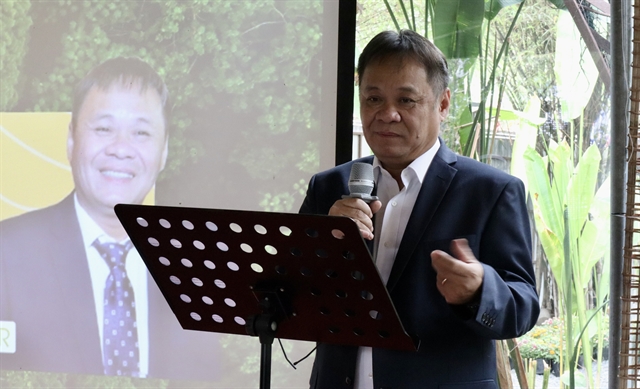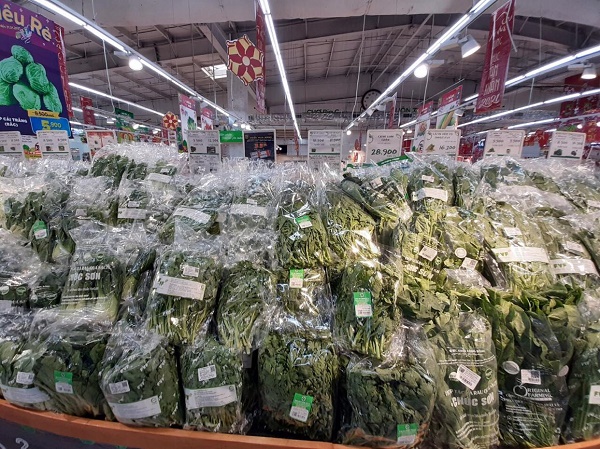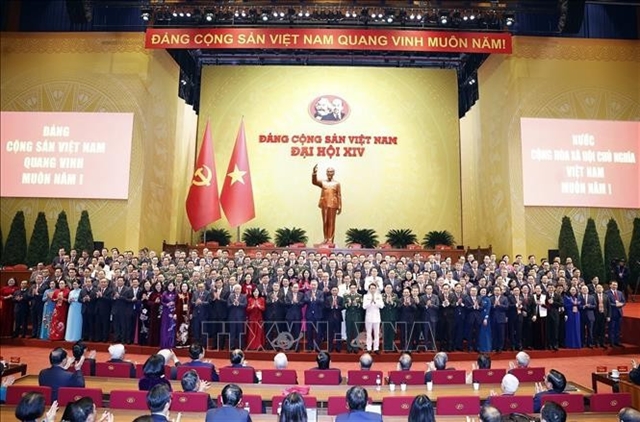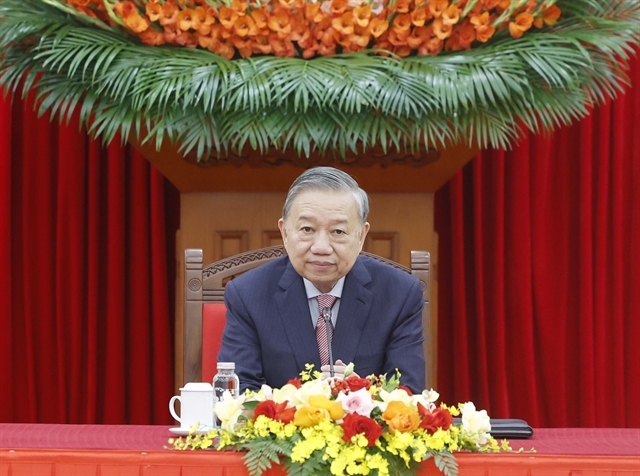 Economy
Economy


|
| Agricultural products from other provinces and cities on sale in a Hà Nội-based supermarket. — Photo chinhphu.vn |
HÀ NỘI — Better connections are needed between the capital city of Hà Nội and other localities, if demand for agricultural products in the city is to be met between now and the Lunar New Year in 2022.
The 10.3 million people in the capital city need huge amounts of essential goods. The city's monthly needs include more than 92,900 tonnes of rice, 18,600 tonnes of pork, 5,350 tonnes of beef, 6,300 tonnes of poultry meat and 123.9 million eggs.
Between 35 and 65 per cent of the demand is supplied locally. To make up for this shortfall, the city is encouraging connections with other localities in agricultural products and food.
According to the head of the Hà Nội Agricultural, Forestry and Fisheries Quality Management Sub-Department, Nguyễn Thị Thu Hằng, in the first ten months of 2021, Hà Nội's distribution channels have supported businesses and producers from other localities to process 220,000 tonnes of farm produce, including many products from the One Commune One Product (OCOP) programme.
Hà Nội has also made connections between nationwide localities and large supermarkets in the city, including MM Mega Market, Big C and Aeon Mall, to supply agricultural products.
To ensure that localities' farming, forestry and fishery products continue to be available in Hà Nội, the city is planning trade promotions and events, providing they follow COVID-19 guidelines.
However, Hà Nội and those localities must diversify their methods of connection and support in the face of increasing demand for agricultural products and food.
In addition, localities need to continue to create favourable conditions for the businesses in trade promotion activities and signing of product consumption contracts.
Nguyễn Văn Hùng, Deputy Director of the Center for Investment, Trade and Tourism Promotion of Lâm Đồng Province, said Hà Nội needed to provide market information for businesses, cooperatives and households in other localities via trade promotion programmes, and programmes of connecting supply and demand on online platforms.
To strengthen connections in the future, Deputy Director of Hà Nội's Department of Agriculture and Rural Development, Nguyễn Ngọc Sơn, said other provinces and cities should continue to review regional specialities that meet quality standards, as well as supply and demand balance in the market.
In addition, they would need to pay attention to the quality of agricultural products and the standards on food safety and hygiene. These would be decisive factors in signing contracts and long-term cooperation between them, he said.
Pork market management
Hà Nội also needs to strengthen controls on pork trading activities and stabilise pork prices, to ensure enough supply up to the Tết holiday in 2022.
Hà Nội markets need 57,780 tonnes of pork from now until the Tết festival. The city's pork supply is likely to reach 57,000 tonnes meaning the shortfall must be imported from provinces such as Hà Nam, Vĩnh Phúc, Bắc Ninh and Hưng Yên, and from foreign markets, including Russia, Thailand, France and the US.
The Hà Nội Department of Industry and Trade will closely monitor the supply, demand and prices of pork, and will have measures in place to balance supply and demand and prices from now until the Tết festival in early 2022, according to the department.
Market information will be provided about pork supply and demand and prices, to avoid instability in the Hà Nội market.
The Hà Nội Market Management Department will also strengthen inspections to prevent the trading of pigs and pork without clear origin or quarantine.
The department will coordinate with the relevant agencies to strengthen inspection for breeding farms, slaughtering facilities, markets, supermarkets, commercial centres and cold storage to control pork supply and retail prices. This will avoid speculation and unreasonable increases in retail prices for pork on the Hà Nội market.
The Hà Nội Department of Agriculture and Rural Development will also boost inspection of quarantine and standards on food hygiene and safety. — VNS




